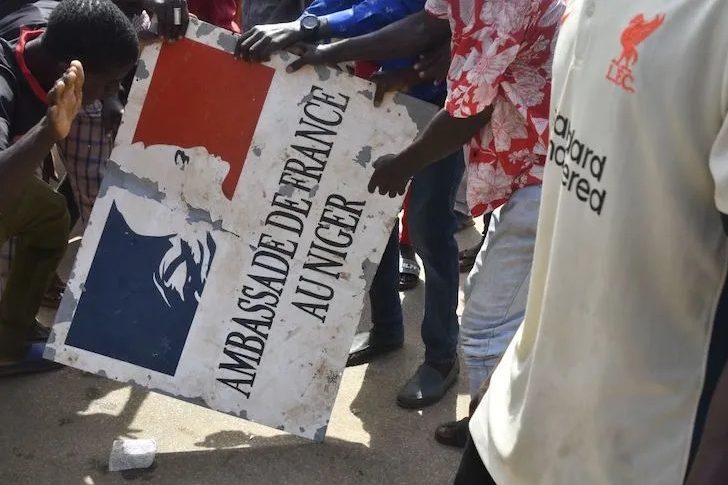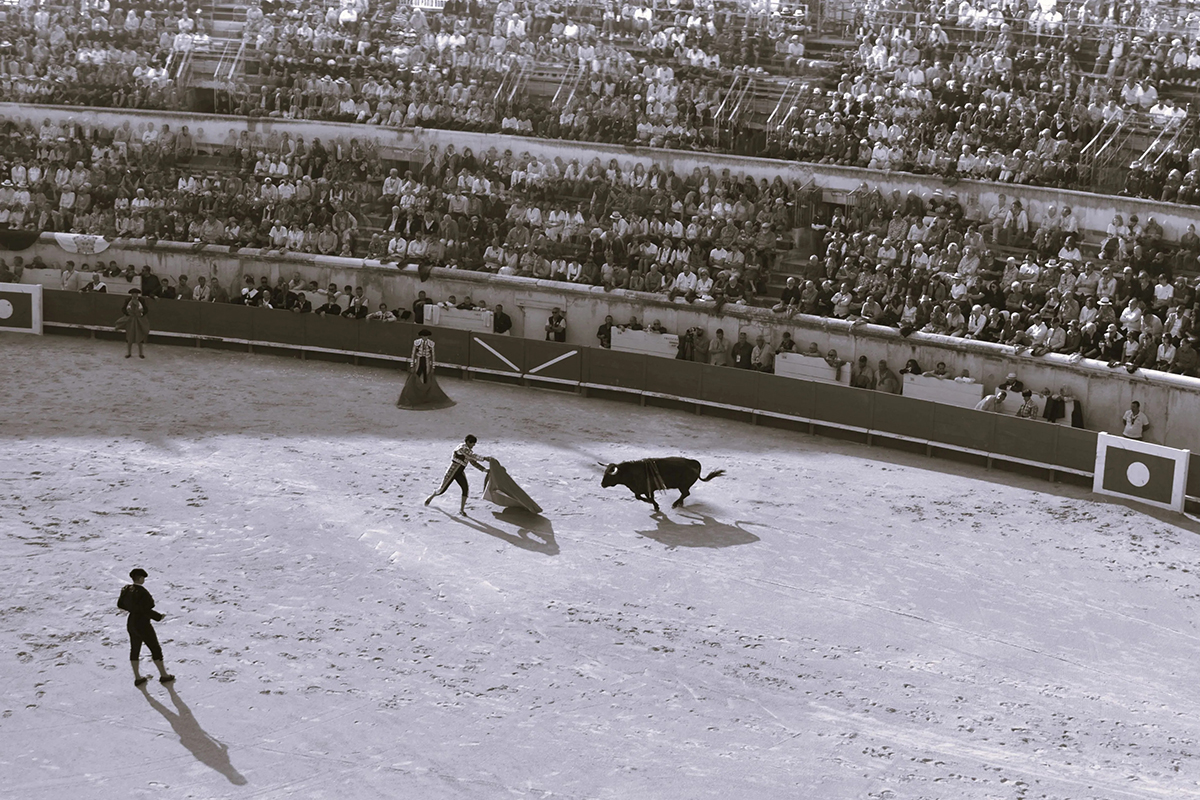France is preparing to evacuate its citizens from Niger following the coup d’état in the West African country on July 26. The French embassy in Niamey — the capital of Niger — said in a statement that the air evacuation “will take place very soon and over a very short period of time.”
Last week’s coup, in which general Abdourahamane Tchiani of the elite presidential guard seized power from President Mohamed Bazoum, is the latest turmoil in a region that has become dangerously destabilized in the last three years. There have been coups in Mali and Burkina Faso which, like Niger, were former French colonies but have turned against their erstwhile master.
There were demonstrations on Sunday in Niamey in which Russian flags were brandished and French flags were burned, and some protesters gathered outside the French embassy. A small number attempted to enter the compound but were repelled by tear gas. President Macron subsequently warned General Tchiani that his response would be “immediate and uncompromising” if French citizens in Niger were harmed.
On Monday, the junta claimed that embassy security guards had injured six protestors during the previous day’s demonstration, and it also accused France of meddling in its affairs.
“In its search for ways and means to intervene militarily in Niger, France with the complicity of some Nigeriens, held a meeting with the chief of staff of the Nigerien national guard to obtain the necessary political and military authorization,” said a statement released on television. France’s foreign minister, Catherine Colonna, refuted the accusation, declaring that their “only priority is the safety of our nationals.”
Tchiani says that he deposed Bazoum because of “the degradation of the security situation,” a reference to the ongoing conflict with the region’s jihadist groups. He also cited corruption and the ailing economy as reasons for taking power from Bazoum, who was elected president in 2021 in Niger’s first democratic transition of power since it gained independence from France in 1960.
Although Bazoum was regarded favorably by the West, he was seen in a less positive light by many of his 24 million people, nearly half of whom live in poverty. Their hard lives have been made more desperate by attacks from Islamist groups linked to the Islamic State group and al-Qaeda. They have become increasingly active in Africa in the last decade, carrying out atrocities that France, despite sending troops to the region, failed to eradicate. The coups in Mali and Burkina Faso were justified by this failure, the military promising to do more to protect the people from the Jihadists.
Instead of French boots on the ground in these countries, it is Russia’s mercenary Wagner Group which are now working with the new regimes. Nonetheless, Vladimir Putin’s strategy of constructing an anti-Western bloc in Africa has suffered as a result of his invasion of Ukraine. According to Thierry Vircoulon, a research fellow at France’s institute of international relations, and who has written extensively about Russia’s attempts to grow its influence in Africa, its image “as a military power has been shaken” as a consequence of the war. The conflict has also reduced the shipment of arms to Africa, Putin’s preferred method of making new friends on the continent.
All the same, Putin will be well satisfied with the coup in Niger. The country is the world’s seventh biggest producer of uranium, which is essential for the nuclear industry, and a quarter of its production is exported to Europe. Last year, Macron announced an ambitious relaunch of France’s nuclear program, with the construction of fourteen new reactors, and the loss of its supply of uranium would be a blow.
Another reason for alarm within Europe is the possibility of another migrant surge across the Mediterranean as a result of the coup. Niger’s neighbor to the north, Algeria, has expressed its “deep concern” at the situation because Niger is the principal gateway for illegal immigration from sub-Saharan Africa. In the last decade, the two countries have worked together to stem this flow, and this year alone Algeria has turned back 9,000 migrants from a dozen African countries. This cooperation is likely to now end and the consequences will be felt in Algeria and also in all likelihood Europe.
This article was originally published on The Spectator’s UK website.

























